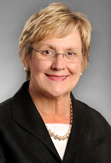A Georgia House panel Monday approved a bill that would toughen penalties for operating an unlicensed personal care home, raising a first offense to a felony from a
misdemeanor.
The vote came after compelling testimony from Marietta Police Chief Dan Flynn, who described to the House Health and Human Services Committee two cases of abuse in unlicensed Cobb County homes.
In one case, Flynn said, a woman in her 50s with dementia was kept in a garage in a “sweltering hot’’ home and was deprived of food and medicine.
The owner in that case, after a plea bargain, was given just a one-day sentence, with credit for time served, Flynn said. “That really got our attention.’’
In a second case, Flynn testified about a Cobb woman accused of physically abusing elderly patients who police say were living in squalor at an unlicensed
Marietta adult care home. “We called it a house of horrors,’’ he said. The woman has denied the abuse charges.
Unlicensed personal care homes have been a problem in Georgia for years. Many of the residents are frail seniors and are unable to defend themselves from abuse.
Morris News Services reported last year that the number of reported complaints of physical, mental and financial abuse of Georgia’s elderly rose 65 percent between 2008 and 2012. And the National Center for Elder Abuse estimates that more than 80 percent of instances of abuse, neglect and exploitation go unreported.
“We’re seeing a lot of this,’’ said Brad Smith, a district attorney for a circuit that includes Jackson and Barrow counties. “There’s a lot of [unlicensed homes] out there.’’
The sponsor of HB 899, Rep. Sharon Cooper (R-Marietta), chair of the Health and Human Services Committee, said the threat of facing a misdemeanor charge “seems to be insignificant” to perpetrators of elder abuse. “They get people through these very attractive ads,’’ she said.
Owners often move residents from one home to another to escape scrutiny, Cooper said.
Flynn added that these facilities seem like “a cover’’ for serious crimes that many might not associate with abuse, such as thefts of money and medication. More than 20 unlicensed homes appear to be offering services in Cobb, he added.
Consumer advocates also voiced support for the bill. Vicki Johnson of the Georgia Council on Aging told the panel that “as long as this crime remains a misdemeanor, the risk to the victim far outweighs the risk to the perpetrator.’’
The bill passed unanimously and now heads to the House floor.
The committee also approved legislation that would launch a certification process for “medical/legal partnerships’’ –- organizations that deal with special problems experienced by low-income patients.
“There are health care issues that can’t be treated with medicine,’’ said Rep. Trey Kelley (R-Cedartown), sponsor of HB 910. He cited the case of a child experiencing
recurrent asthma attacks due to living in a home filled with mold.
An attorney can step in and help the family involved, Kelley said.
One such partnership exists between Georgia State College of Law, Atlanta Legal Aid and Children’s Healthcare of Atlanta. The Health Law Partnership Legal Services Clinic has provided needed assistance to 6,000 children over the past decade, tackling issues that include the cutoff of utilities to a child’s home, Children’s Healthcare said
State certification could help these partnerships raise money and expand their reach, Kelley said.
The bill passed unanimously.

